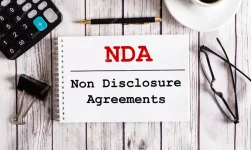
Protecting sensitive information between client and freelancer is crucial. One of the most effective tools for ensuring this protection is a Non-Disclosure Agreement (NDA). Whether you’re a freelancer, a startup, or a well-established company, understanding and utilizing NDAs can safeguard your intellectual property and maintain your competitive edge.
What is an NDA?
A Non-Disclosure Agreement (NDA) is a legal contract between two or more parties that outlines confidential material, knowledge, or information that the parties wish to share with one another for certain purposes, but wish to restrict from wider use or dissemination. Essentially, it is a promise that the parties will not disclose certain information covered by the agreement.
Why are NDAs Important?
- Protection of Intellectual Property: NDAs protect your intellectual property by ensuring that any proprietary information shared with another party is not disclosed to third parties. This is crucial for businesses that rely on unique ideas, products, or services.
- Maintaining Competitive Advantage: By preventing the unauthorized disclosure of confidential information, NDAs help maintain your competitive advantage. This is particularly important in industries where innovation is key.
- Clarification of Confidentiality: NDAs clearly define what information is considered confidential and the obligations of each party. This helps prevent misunderstandings and disputes over what can and cannot be shared.
- Legal Recourse: If a party breaches an NDA, the agreement provides a basis for legal action. This can deter potential breaches and provide a remedy if a breach occurs.
NDAs are useful in various business scenarios, including:
- When sharing business plans or financial information with potential investors.
- During discussions about joint ventures or partnerships.
- When engaging with new clients or suppliers.
- When hiring employees or contractors who will have access to sensitive information.
A well-drafted NDA should include the following elements:
- Definition of Confidential Information: Clearly define what information is considered confidential.
- Obligations of the Receiving Party: Specify how the receiving party must protect the confidential information.
- Exclusions from Confidentiality: Outline what information is not covered by the NDA (e.g., information that is publicly available).
- Term of the Agreement: Define the duration of the confidentiality obligation.
- Consequences of Breach: Detail the legal consequences and remedies for breach of the agreement.
NDAs are essential tools for protecting your business’s confidential information. They establish clear guidelines for the handling of sensitive data and provide legal recourse in the event of a breach. Whether you are a freelancer, a startup, or a large corporation, implementing NDAs in your business practices can safeguard your intellectual property and maintain your competitive edge. Make sure to tailor each NDA to the specific circumstances of your business dealings and consult with a legal professional to ensure its enforceability.
Attached you'll find a customizable NDA template that you can use doing some slight edits. If you find this useful, feel free to like and share!





